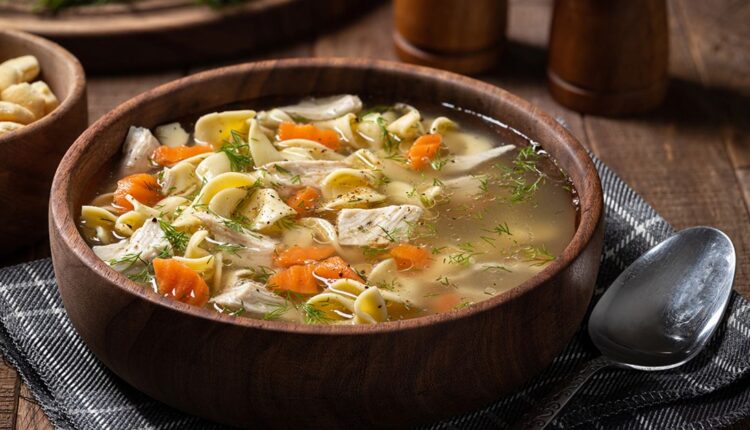Is Soup a Flu Remedy? Here’s What Experts Say
This helps the body recover without overburdening the digestive system.
LONDON: When flu or cold symptoms hit, many people turn to a warm bowl of soup for comfort. But does soup actually help you recover, or is it just a comforting home remedy? Here’s what science and experience both suggest.
Warm soup has been a traditional flu remedy for generations. Healthcare experts say that while soup is not a medical cure, it does offer real benefits that can support your body when you’re sick.
The steam from hot soup can temporarily open nasal passages. This makes breathing easier and helps loosen mucus, providing quick relief from a blocked nose.
During flu or cold, dehydration worsens fatigue, headaches, and dry throat. Soup contains water, salt, and sometimes electrolytes — all of which help maintain hydration.
Read More: Pumpkin: A superfood rich in vitamins, fiber, and sleep-boosting benefits
When the body is fighting infection, it needs energy but may not tolerate heavy meals. Soup provides:
-
Light protein
-
Warmth
-
Vitamins from vegetables
-
Gentle calories
This helps the body recover without overburdening the digestive system.
Chicken soup, in particular, gained popularity because it contains ingredients that support the immune system:
-
Chicken for protein
-
Garlic and ginger with natural anti-inflammatory properties
-
Vegetables for vitamins A, C, and antioxidants
Studies suggest chicken soup may slow the movement of white blood cells responsible for inflammation, leading to temporary easing of symptoms like sore throat and congestion.
But it still isn’t a cure
Soup cannot:
-
Kill viruses
-
Replace medicine
-
Shorten flu dramatically on its own
Illness often brings discomfort, body aches, and low energy. A warm bowl of soup provides emotional comfort and helps you feel better overall, even if temporarily.
Soup — especially warm broths and chicken soup — cannot cure the flu or cold. However, it does help ease symptoms, provide hydration, and support the body’s natural healing process. For full recovery, rest, fluids, and medical advice (when needed) remain essential.




Comments are closed, but trackbacks and pingbacks are open.